Copper turned criminal lawyer Chris Hannay has “seen some heavy s**t”.
And although working both sides of the fence – throwing people in jail and keeping them out – has “hardened” him, his emotions are anything but bulletproof.
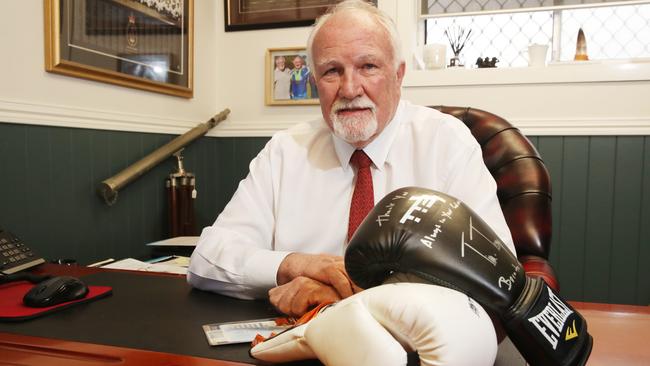
The demeanour of Hannay, who has represented notorious ex-bikie Jacques Teamo, serial conman Peter Foster and former league player turned convicted cocaine kingpin John Touma, changes markedly when Kelly Wilkinson is mentioned.
The solidly-built boxing enthusiast for a time represented the mother-of-three’s alleged killer and estranged husband, Brian Earle Johnston. Johnston is facing a murder charge after allegedly setting fire to her in her Arundel backyard last year. He is yet to enter a plea and an official trial date has not been set.
Bringing it up – a death that shocked the country – Mr Hannay’s face goes pale like he has been smacked in the corner of a ring.
“Reviewing that bodycam footage was one of the worst things I’ve ever seen in my life,” he said.
“The officers attending that house, I really feel for them. You can hear their breathing and they were definitely in a controlled state of panic.”
Hannay says the harrowing scene brought up the same the raw emotion he felt attending a devastating house fire in his early days as a New South Wales policeman.
“Basically, I watched this man at the front of the house trying to get out through a window and his body just melted away in front of me.
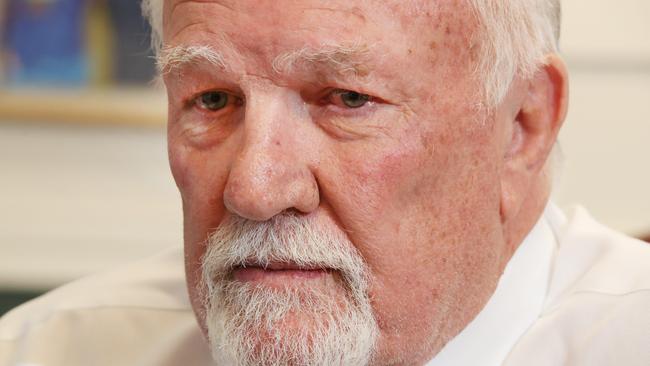
“On one hand I have tried to keep it (Ms Wilkinson’s) case from impacting me. Given the enormous amount of street experience I’ve had and the things I’ve witnessed I have built up an emotional tolerance. But internally I probably don’t have that (tolerance), because sometimes I get quite upset about why things have happened.
“I was more concerned and still am concerned about the two officers that went to that house on that day. I rang those two detectives and urged them to seek some help because what they went through on that day would have been absolutely horrific.”
GCB: You made the move from copper to criminal lawyer. How and when did that happen?
CH: I was in the New South Wales Police from 1971 through to 1989. I worked for nearly ten years in the drug and major crimes bureau. I was involved with the arrests of a lot of majors (heavy duty criminals) back in those days the days of the Neddy Smiths and the like.
The dynamics of the New South Wales police force changed considerably, the politics. I’d had enough.
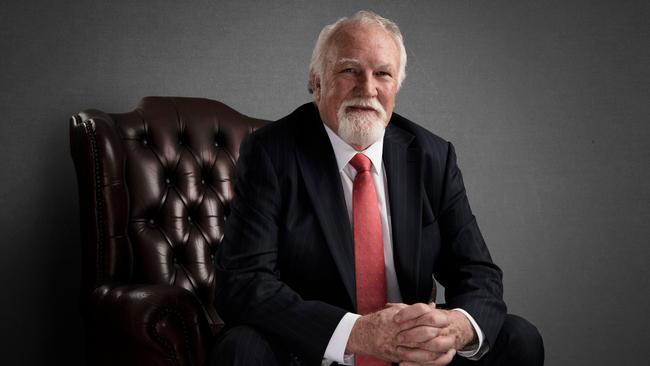
I moved to Queensland in 1989 and worked in a computer organisation and clearly that didn’t suit me. I then started a private investigation firm for a time and that was pretty successful and then got offered a job as an investigator at the CJC (the former Crime and Justice Commission, now the CCC).
And then I thought to myself, what does a bloke do who has been in the force and knows crooks so well? I obviously wasn’t going to go and make pottery or candles so I went back and finished my law degree at Armidale University, which I had started while in the police force. After working in a law firm for four years, I decided I was too old to work for people and started my own business.
GCB: Has working in the force given you a certain edge as a criminal lawyer? You obviously know criminal behaviour inside out. Can you tell me how those skills have served you?
CH: There’s no doubt that working on both sides of the fence has been an advantage. There’s a lot of young people coming out of university that haven’t got the life experience or the street smarts.
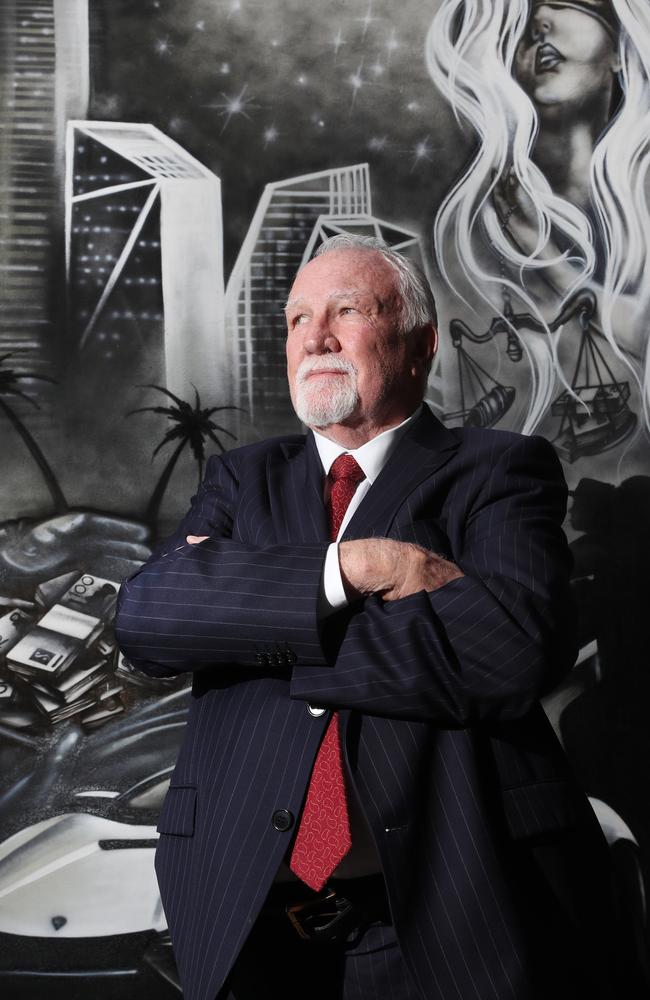
Coming from the force, particularly the drug squad and major crimes bureau, you are dealing with top echelon criminals and you get to know how to talk to them and how to understand them.
And generally as a policeman, you learn how to talk to any member of the public, how they talk, how they react and what they are going to do next.
The transition from copper to criminal lawyer is dynamically difficult. As a lawyer, you’ve got every organisation watching you and stabbing you in the back, agencies wanting to crucify you and your clients – who may turn on you at any time.
GCB: I understand you have a number of lawyers in the firm who were former police officers?
CH: The three guys that have come to me from a police background, I’ve always found that they are one; loyal, two; have an understanding of human behaviour and three; have a vast understanding of how our justice system works.
GCB: Your sons work in the firm too, I understand Daniel is a director and solicitor at your Brisbane-based firm?
CH: Daniel is my eldest and now runs my Brisbane office. He’s been there a number of years, is a great operator and really enjoys it. He worked with me here on the Coast for a while as did my other son, Shaun. Shaun was with me for four years and decided he would rather work with his hands than work as a lawyer, but he’s happy.
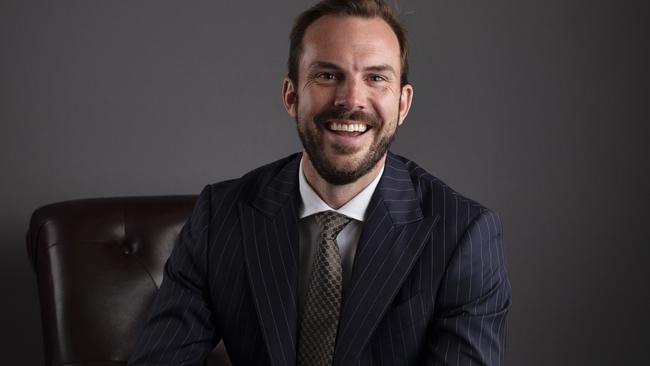
GCB: Tell me about your love for boxing and sports. You’ve long been a supporter of Jeff Horn. Can you elaborate on how you’ve thrown your support behind him?
CH: Hannay Lawyers has long been known for throwing its support behind boxers financially and any other way we can help them. Years ago, a good mate of mine rang me up and said I’ve got a young bloke you’d like to meet. And when Jeff (Horn) walked in, he was not at all what I expected when you think of a ‘fighter’. No tattoos, no scars, all of his teeth, clean-cut and no cauliflower ears. He looked like he was a marble player (laughs).
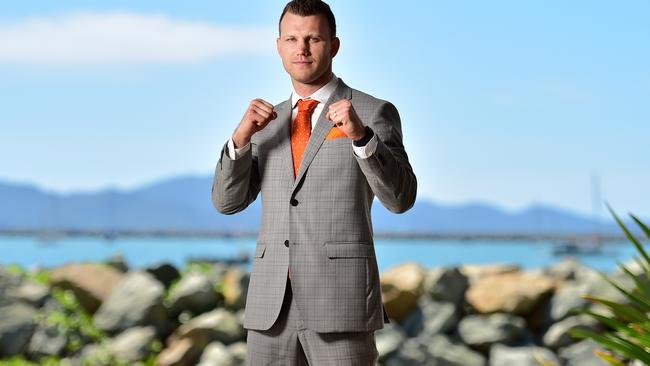
He was an amateur at the time and not well-known. But I knew from the get-go there was something special about him and we’ve supported him financially, even going as far as assisting in covering his teachers wage in those early days. I’m immensely proud of Jeff.
GCB: And did you ever box professionally or as an amateur?
CH: Only in the street (laughs).
GCB: How did you come to represent serial conman Peter Foster? He’s an extremely colourful character. What’s the history there?
CH: I've known Peter for a long time and he’s a scallywag and he has lived that life. But in certain matters, it has been a fundamental disgrace of our justice system what has happened to him. There has been a certain bias against him for decades given his history. There’s been a long-running jumping the gun mentality to incarcerate him just because of his name.
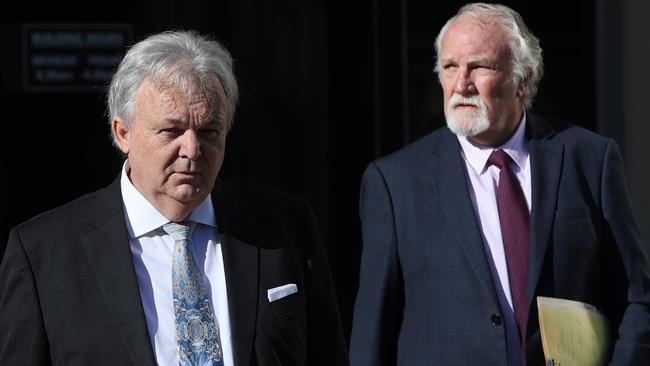
When you get to really know Peter, he is a charming individual with a plethora of experience – good and bad. He really is the international man of mischief.
He has mingled with kings and queens and has sat at the tables of celebrities, he really is larger than life. When Peter comes to visit our office in Southport, he is the consummate gentleman. He brings the girls pastries and coffees and dated Samantha Fox for a long time. It shows you the charisma of the guy.
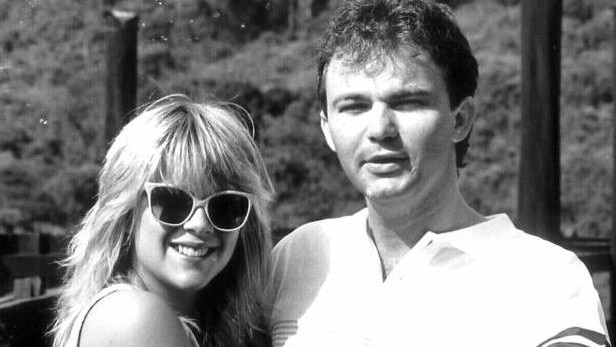
If you sit down with Peter for more than half an hour you’ll soon realise there is a lot more to him than the media makes out.
But there is another side to him. If you give Peter the chance and are silly enough, he will take advantage. He doesn’t rip off the poor. He is smarter than most of the so-called conmen on this planet.
GCB: Can you tell us about league star turned convicted drug kingpin John Touma? How you came to represent him and your personal feelings about his trafficking charges? It was quite a lengthy investigation by the CCC into the 48-person-strong syndicate.
CH: John is just a lovely bloke. He came in here (to Hannay Lawyers), a classic footballer back in his day. To me, he is one of these guys – like a lot of sportsmen – you leave sport and there is a cliff you fall off.
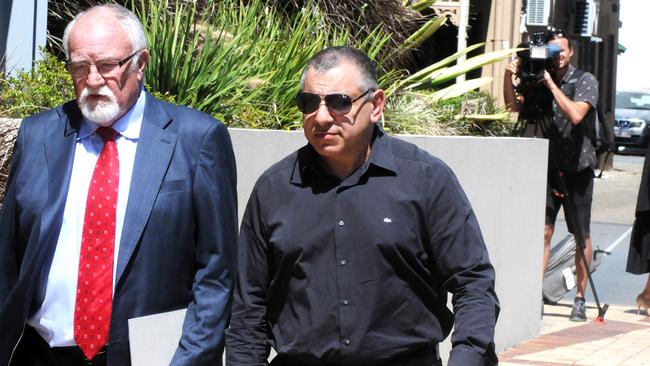
In sports you have this network of people around you that you trust and he’d just fallen off a cliff.
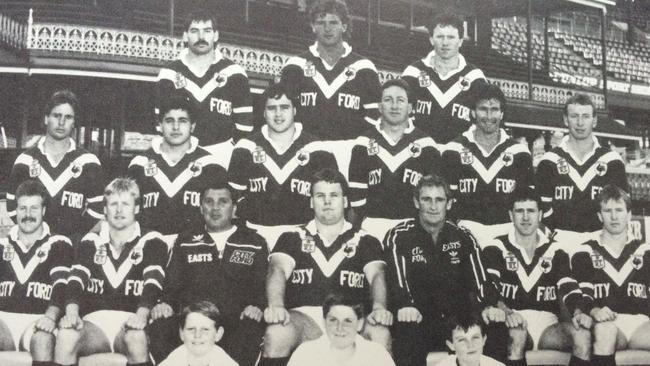
Unfortunately, like many retired sportsmen before him, he had fallen into this underworld where you think there is a quick quid to be made in selling narcotics or unlawful substances.
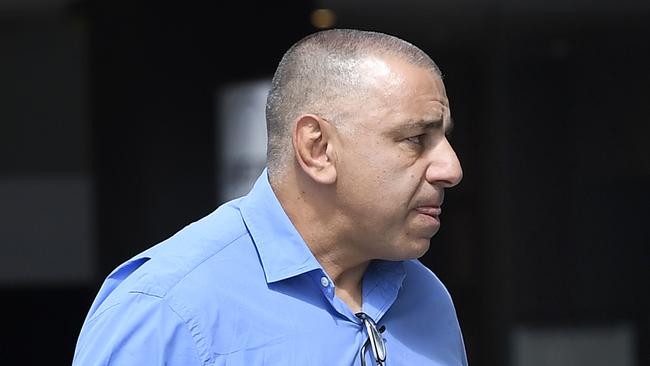
Unfortunately, they caught him and did a number on him. But he pleaded guilty and didn’t put on any airs or graces. He was honest in his dishonesty and he paid the price — and went to jail for a long time. I treat him as a friend. He’s done some things but he’s a human being, a good human being. Unfortunately, falling into drugs and getting into that world is so easy.
GCB: On notorious ex-bikie Jacques Teamo, were you phoned the day he and an innocent female bystander were peppered with bullets at Robina Town Centre? What was it like to receive a call like that?
CH: It’s a horrible phone call to get. You see a bloke who was obviously stalked and for someone to carry a gun in a shopping centre, that’s no accident. They are there for only one reason – to hit Teamo. In the midst of all of that, (the shooter) hit an innocent bystander.
I represented (Teamo) for a long time, all the way through the Broadbeach brawl saga.
A few months ago I actually ran into him and his son down at Broadbeach. He’s a changed guy – fundamentally – absolute gentleman.
From what I understand he’s also trying to get his face tattoos removed, but with the amount of coverage he has - I can imagine that would be a very painful process.
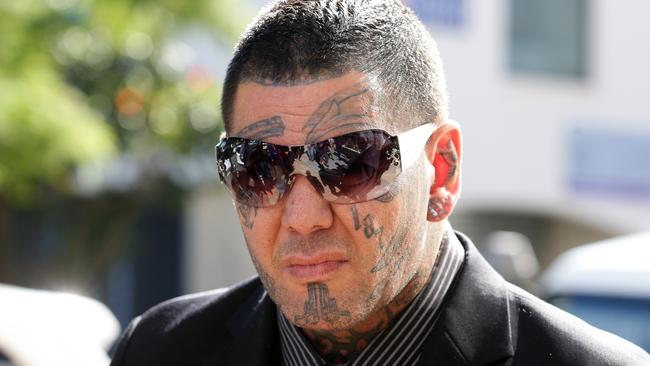
Jacques had come from a dysfunctional family, clearly had some issues and what he really needed was someone to grab him and guide him. Unfortunately in his case it was the Bandidos. Once you are inducted into an outlaw motorcycle gang, it’s very hard to get out.
The mantra is really, ‘once you are here, you are here for life’. Even if you do want to leave there are penalties involved, physical, financial, all sorts of things.
Jacques is lucky at the end of the day. He has done a full turnaround and is fine. For one reason or another some bikies outgrow it, they grow up. It’s like a bad junkie who stays clean.
GCB: Teamo has gone on record saying he regrets the infamous 2013 Broadbeach brawl and is now a family man. All 18 accused in the Broadbeach brawl walked free. Were you pleased with the outcome?
CH: Coming from a defence position, of course. What I say about that is the defence obviously picked the holes in the prosecution. It’s not me saying it was right or wrong, it’s that the police did not prepare a strong enough brief to convict them.
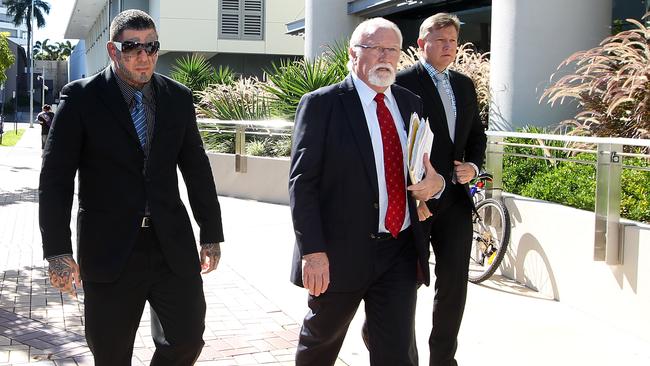
GCB: Can you tell me about your successful defamation lawsuit against former Queensland Premier Campbell Newman and Jarrod Bleijie MP over comments made about criminal lawyers being part of a criminal gang machine? What’s it like to go after high-ranking figures who wielded so much power at the time?
CH: That’s what we do. They are not the only ones we’ve successfully attacked. In that particular issue, there were some big decisions to make. If you are going to crack on in the ring, you gotta have some big gloves and throw some big punches. The matter was settled out of court, but the rest is confidential.

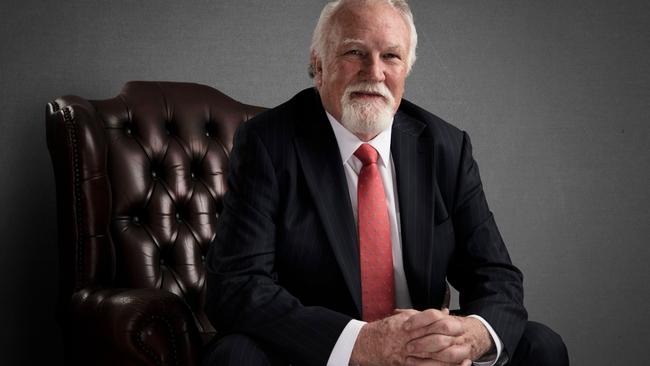
Build like it’s the 90s: What Main Beach’s revival needs to succeed
Main Beach has surged back to life with a new generation of towers rising over Tedder ave, but a leading developer says one critical change is needed. FIND OUT MORE
The last cut: A legend of Surfers Paradise calls it quits
He cut hair through Schoolies, the Indy, and the golden days of Surfers. Now, after 23 years and hundreds of loyal clients, one of the last local icons reveals why he’s been forced to call it a day.